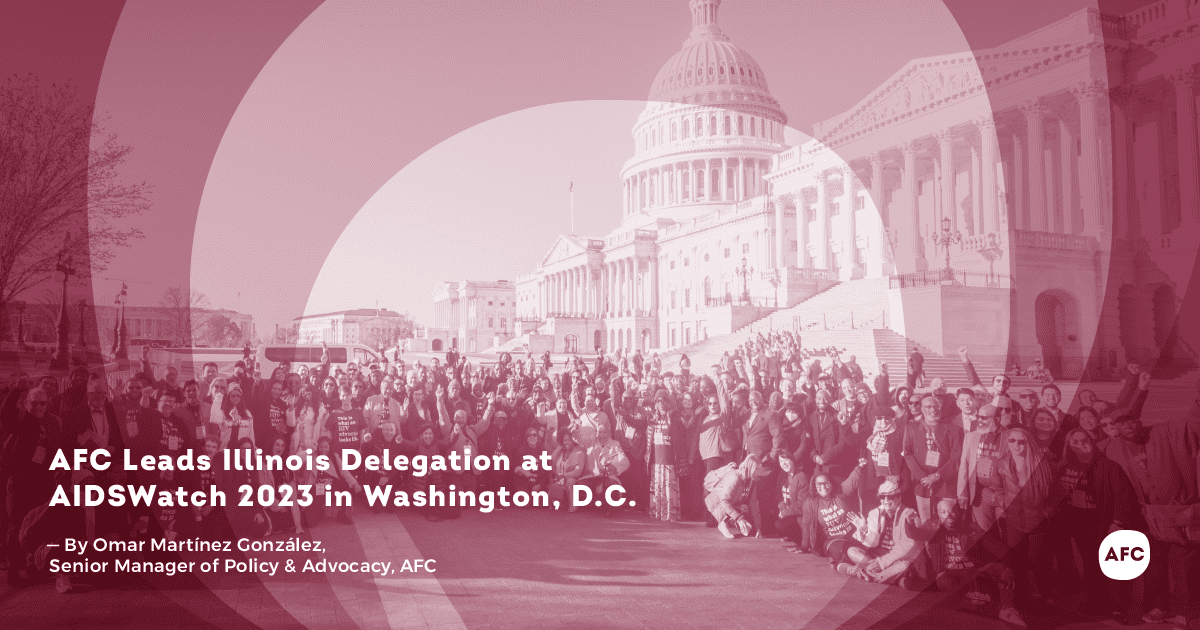Quinn Medicaid Plan Will Limit Access to Life-Saving Medication, Raise Costs for the State, and Increase HIV Cases
Today, Gov. Pat Quinn released a litany of proposed Medicaid service cuts designed to reduce the budget by $1.3 billion. One of these proposals would make it far more difficult for people with HIV to access once-a-day combination pills that have simplified and vastly improved HIV treatment.
The AIDS Foundation of Chicago (AFC) strongly opposes this recommendation, which likely will create a barrier to continuous adherence to lifesaving HIV medications that can also prevent HIV transmission. In other words, the once-a-day pills save lives and money in the long run.
“The $3 million in projected savings from this policy change, in a $2.7 billion Medicaid budget deficit, will be far eclipsed by the cost of additional hospitalizations, worse health outcomes, and more people living with HIV in the community,” said David Ernesto Munar, AFC’s President/CEO. “The cost will far outweigh the initial savings.”
Research shows that people with HIV who take one-pill-a-day combination therapy are far more likely to take their HIV medications than individuals who take the components separately, resulting in fewer hospitalizations[i] and healthier patients. Quinn’s proposal would require cumbersome prior approval before patients could access combination therapy.
In fact, studies show that people with HIV taking one HIV pill a day were 1.6 times more likely to take all their medication as directed and had a 24% lower risk of hospitalization than individuals taking the component pills separately.[ii] Just as importantly, people adhering to combination therapy who achieve viral suppression have a reduced risk of HIV transmission to others.
In addition, the governor’s proposal to institute prior authorization for combination HIV medications will put people with HIV and their health care providers at the mercy of the state’s broken prior-approval system. Doctors often have to wait as long as 20 minutes to speak with prior-authorization staff, and requests can take up to three days to be reviewed. Multiplied by thousands of patients, time required to obtain HIV medication prior approval will drive even more providers away from Medicaid and worsen access.
AFC urges Gov. Quinn and the General Assembly to discard this proposal. In recognition of the significant public health interest in controlling the HIV/AIDS epidemic, the state should also continue the current policy of exempting HIV medications from Medicaid’s monthly limits on the number of prescriptions an individual can receive. AFC also opposes any efforts to institute a preferred list for HIV-related medications in Medicaid, which will infringe upon the best judgment of HIV physicians and their patients.
“HIV-affected communities and healthcare in Illinois could also be adversely affected by many of the other proposed service cuts in Medicaid,” said Daliah Mehdi, RN, AFC’s Chief Clinical Officer. “The proposed reduction in community-based services for home-bound disabled individuals, including those with HIV/AIDS, the elimination of coverage for working families and their children, including undocumented children, and the elimination of Illinois Cares Rx — all of these measures would affect the lives and health of tens of thousands of vulnerable Illinoisans.”
While we understand the need for Medicaid savings, we urge the governor and General Assembly to identify new revenue for Medicaid, explore a multi-year solution to balancing the Medicaid budget, avoid program cuts that will simply increase costs elsewhere in the budget, and give reforms that were passed in 2011 time to work.
“The governor’s proposal to generate additional tax revenue from cigarette sales is a great start,” said John Peller, AFC Vice President for Policy. “We look forward to working with the governor’s office and legislature to bring Medicaid to fiscal stability without worsening the health of seniors, children, working families, and people with disabilities who count on the program every day to maintain their lives and dignity.”
Media contact: John Peller, 312-719-6208
####
[i] Airoldi M et al. Patient Preference Adherence 2010; 4:115-125.
[ii] Sax P, et al. Oral presentation 113, 10th International Congress on Drug Therapy in HIV Infection, 7–11 November 2010, Glasgow, Scotland.


